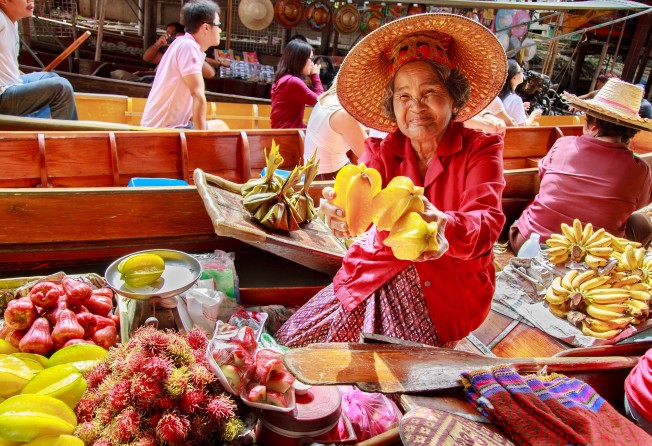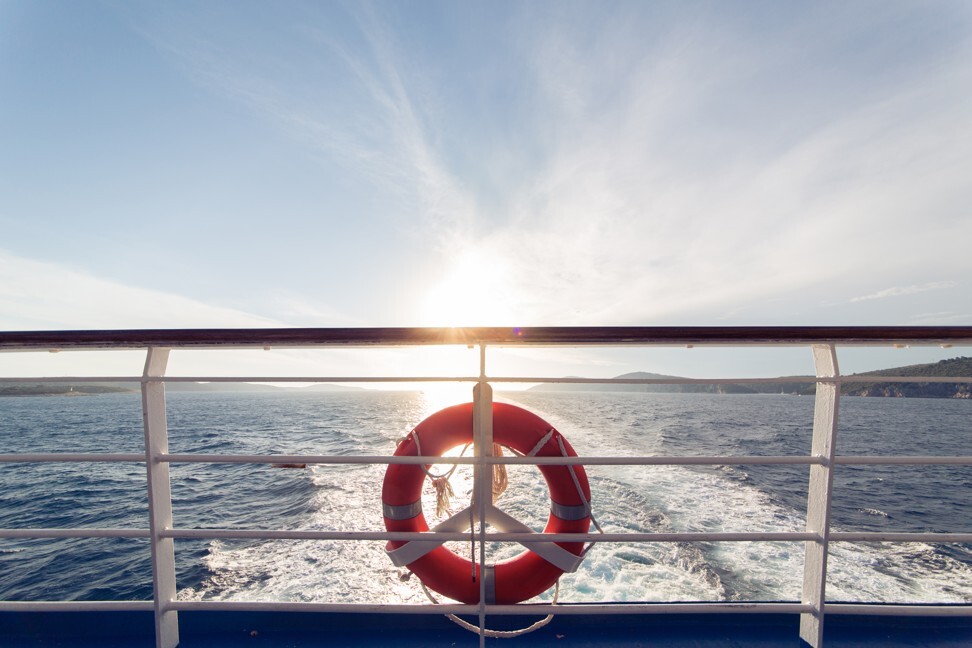
Seven frequently asked travel questions answered - from writing reviews to hotel ratings
- Why do Thais appear to speak little English when the country welcomes 40 million visitors a year? And why do so many cruise passengers seem to fall overboard?
- Here are our answers to those plus five other oft-asked queries from tourists

Why does it appear to holidaymakers that Thais speak little English? This “mystery” preoccupies plenty of tourists and travel bloggers. True, there are a number of countries where proficiency in the world’s common language is limited but few of them receive 40 million visitors a year.
Theories range from an education system that favours rote learning and grammar, rather than oral fluency, to the fact that Thailand was never colonised. Many Thais do speak excellent English, of course, but holidaymakers are unlikely to encounter them selling souvenirs in a night market or renting motorbikes. Rest assured, the doctor who treats you after crashing said vehicle is likely to be fluent.
Most Thais aren’t paid enough nor is there the incentive to spend hours in evening classes perfecting their pronunciation. In general, those employed in the tourism industry have the level of linguistic competence required to do their job and no more. No one ever turned down a Thai massage because the masseuse was unable to discuss Shakespeare.
Why are some hotels extra keen for guests to write reviews as soon as possible? Every so often a hotel manager asks me whether I’ll be so kind as to write a positive review. This happens after I’ve told him how much I’ve enjoyed my stay. On some occasions, the request has an imploring, desperate edge and I think I know why.
“We’re only as good as the most recent review page,” a guest house-owning friend once explained to me. Fair point – not many of us trawl through hundreds of guest comments.
We look at the overall score and a few recent reviews – and if one happens to mention a bedbug infestation or surly staff, then the boss will want to relegate the offending complaint as quickly as possible with lots of new (and glowing) praise.

Why do youth hostels often score higher marks than five-star hotels on Booking.com? Search for accommodation on Booking.com and you will discover an anomaly. Backpacker hostels often score higher marks than some of the world’s most luxurious hotels. But how can a thin mattress in an eight-bed dormitory at the GoodMood Hostel in Moscow achieve a 9.4 while the Peninsula hotel in Hong Kong warrants only 9.3? Even the Hippie Hostel in Goa, India, can match that.
Could it be that budget traveller millennials and Gen Zers have found a way to tweak the ranking algorithm? Maybe, but I suspect it’s simply that youngsters are less discerning than everyone else. No doubt many hostels are kept in spotless condition but cleanliness is not something teenage travellers prioritise, or even notice.
When writing their reviews, party animals rarely dwell on the thin layer of dust under a bunk bed or the limited choice of cooking utensils in a communal kitchen. Their positive feedback (and correspondingly high scores) is peppered with anecdotes about how much alcohol-fuelled fun they had.
So, insert the word “party” in your hostel name, fill the website gallery with beer swigging backpackers and provide mixed rather than single-sex rooms, and you’ll leave the competition in the, er, dust.
Why are accommodation website photos often poor? Flowery text (“immaculately presented suites only a few barefoot steps from the sun-kissed sands”) is all very well but a selection of thoughtfully composed images is far more likely to generate interest, and thus bookings. Whoever heard of someone sending a text message describing the Serengeti wildebeest migration or a stunning Balinese sunset?
No, what our friends really want is a photo. Yet countless property owners are content to upload half a dozen blurred shots overlooking the guest house car park on a rainy day.
You might be the most accomplished innkeeper in town but if your website pictures are rubbish, you won’t have many guests to impress. Some budget and mid-range hoteliers doggedly continue to prioritise words over pictures and claim they can’t afford to pay a professional snapper anyway. I think they are making a mistake. Neglecting the visuals is the photographic equivalent of entrusting your best man with the job of taking the wedding photos with his mobile phone.

Is travel dangerous? What are the chances of dying on holiday? When you consider how many of us travel in normal times (1.5 billion international tourist arrivals were recorded in 2019), the risk of dying on holiday is reassuringly low. The biggest factor influencing our perceptions of danger is that tourist fatalities are more widely reported. World Health Organization figures show that at least 59,000 people die of rabies each year but the lingering demise of Norwegian Birgitte Kallestad, bitten by a stray puppy she rescued from a street in the Philippines, was the tragedy that made the headlines. Hippos kill about 500 people every year but tourist maulings are rare and although an estimated 430 Burmese were killed in 2018 by explosive remnants of war, a German hiker who died in 2019 after standing on a landmine was the story that went viral.

Why do so many cruise passengers seem to fall overboard? Every year, an average of 20 cruise passengers slip, slide and tumble into the sea from luxury liners. According to Cruise Critic website, the four main reasons for people falling overboard are: accident, suicide, foolish behaviour, (which is often linked to) alcohol or drugs. Binge drinking is common, particularly aboard ships that market themselves to young people (they are called booze cruises for a reason).
Liners have strict protocols for dealing with such an eventuality. The ship must turn back, stop the engines and lower search and rescue lifeboat teams. Flotation devices are thrown down and other vessels in the vicinity are alerted and requested to assist in the search.
Why do so many male tourists fall to their death from balconies in Thailand? Suicide may not be the primary cause of “man overboard” deaths, but returning to the country where we began, taking one’s own life does appear to explain most balcony falls in Thailand.
An increasingly common phenomenon, those making the lethal leap tend to be foreign males and the beach resort of Pattaya is where a disproportionate number of incidents occur. The city attracts its share of older men down on their luck – broke after a failed business venture, perhaps, or swindled and jilted by a girlfriend. Not all balcony toppling episodes are suicides, however. As with cruise ship mishaps, alcohol-related accidents aren’t unknown and a few online sleuths believe some fatalities are more sinister than others. Headlines such as “Brit dies in suspicious Pattaya balcony fall, 4 ladyboys arrested” and “Dutch tourist falls from ladyboy’s condo balcony” add weight to the speculation.